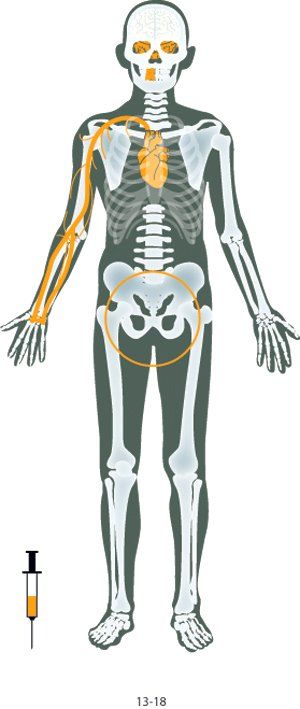
BLOOD PRESSURE
The AAP says that your blood pressure should be checked annually.
VACCINES
Get a meningitis vaccine, if you haven't already, before going to college, and women who have not yet gotten the HPV vaccine (three doses) should get it, says the ACIP. An annual flu shot is recommended for everyone, and you should talk to your doctor about getting any other childhood vaccines you may have missed.
SEXUAL HEALTH
If you're a woman, you should get your first Pap smear within three years of becoming sexually active or at age 21, whichever comes first), says the USPSTF. Also talk to your doctor about whether you should be tested for sexually transmitted diseases--one in two sexually active youth gets an STD by the age of 25, according to the CDC. The USPSTF recommends chlamydial screening for all sexually active women under 25 years old.
Some docs tell male teens to check themselves for signs of testicular cancer. The American Cancer Society recommends that doctors check for this cancer during physicals, but the USPSTF recommends against routine screening.
DEPRESSION
The USPSTF recommends that adolescents get screened for depression if proper treatment is available.
ORAL HEALTH
Brush your teeth twice a day, floss once a day, and go to the dentist regularly (usually every six months).
SECOND OPINION | MENTAL ILLNESS
Suicide is the third leading cause of death among teenagers, and yet 90 percent of the time no one identified the adolescent's depression beforehand. Too often, warning signs are written off as a bad bout of stereotypical teen behavior: moodiness, defiance, social isolation, substance abuse, and significant (and negative) changes in sleep, eating, and schoolwork. Parents often assume it's time for tough love, not a call to the doctor.
That's why a number of reports, including one in the June issue of Pediatrics, call on pediatricians and primary-care physicians to do more to screen their young patients for early signs of mental-health problems. Researchers know that the first symptoms of mental illness often emerge by age 14, and it's best to identify and treat them early. But that happens too rarely. Typically, these diseases aren't diagnosed until they've caused significant damage.

"These teens get off track just at the point in time when most youngsters are developing the skills they need to be successful adults," says Laurie Flynn of Columbia University's TeenScreen program, adding that untreated mental illness is one of the prime reasons students drop out of school. While Flynn says that research-validated screening tools are now available in about 1,000 locations, including many schools, researchers say that parents seem to take the results more seriously when they come from their child's doctor than when they come from school officials.
Dr. Jane Foy, professor of pediatrics at Wake Forest University School of Medicine and chair of the of Pediatrics Task Force on Mental Health, says doctors are addressing the issue. "We're trying to let families know that we're interested in the head as well as the rest of the body."
Research by Ian Yarett
Healthy Living: The Complete Package
Uncommon Knowledge
Newsweek is committed to challenging conventional wisdom and finding connections in the search for common ground.
Newsweek is committed to challenging conventional wisdom and finding connections in the search for common ground.





